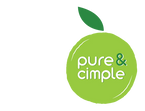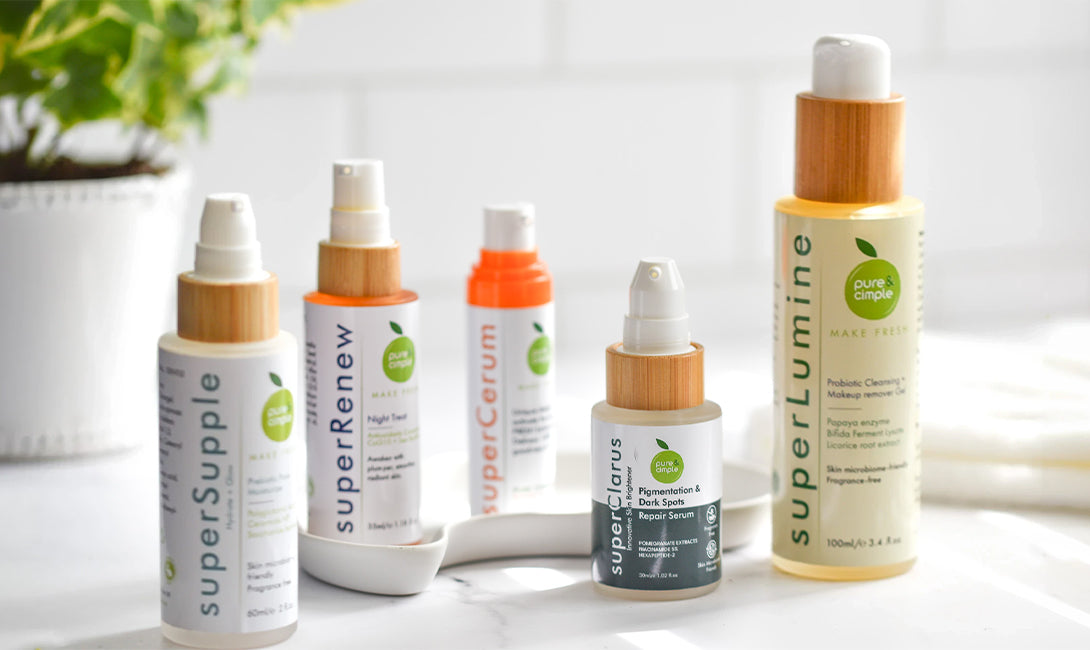Understanding the dance between hormones and our skin isn’t just about recognizing challenges—it’s about finding solutions. By knowing what ingredients to incorporate during specific life stages, we can better cater to our skin’s needs and maintain its health and beauty throughout the years.
1. Puberty & Acne

Puberty is synonymous with growing pains, both emotionally and dermatologically. The surge in androgens often stimulates sebaceous glands, leading to excessive sebum production, clogged pores, and a breeding ground for acne-causing bacteria.
Tips:
Committing to a regular skincare routine during puberty is vital. Cleanse twice daily, exfoliate weekly, and never underestimate the power of a balanced diet. Reducing sugary and greasy foods can diminish the likelihood of breakouts. Maintain a clean pillowcase and refrain from touching the face often, as these can minimize bacterial buildup that can cause acne.
The Ingredients to Look For:
- Niacinamide: Known for its ability to soothe and reduce inflammation, this vitamin aids in reducing sebum production, minimizing pores, and improving the skin's texture.
- Panthenol (Provitamin B5): Not only does it hydrate, but it also promotes skin healing, making it perfect for those pesky acne marks.
2. Monthly Cycle & Breakouts
The Challenge:While the menstrual cycle is a hallmark of reproductive health, the hormonal rollercoaster it induces can mean unpredictable skin. The days leading up to menstruation see a rise in progesterone and testosterone. This can cause the skin to become oilier, leading to potential breakouts, particularly along the jawline.

Tracking one's cycle and tailoring skincare can be beneficial. Stress-relieving practices like yoga, staying well-hydrated, and reducing caffeine and salt intake a week before menstruation can be helpful in managing these skin challenges.
The Ingredients to Look For:
- Papaya Enzyme: An excellent natural exfoliant, it helps to clear out clogged pores and rejuvenate the skin.
- Vitamin C: An antioxidant powerhouse, it safeguards the skin from environmental stressors and can help in reducing hyperpigmentation from past blemishes.
3. Pregnancy Glow & Challenges

Pregnancy brings about a myriad of changes. While some enjoy the renowned 'pregnancy glow' due to increased blood circulation, others grapple with pigmentation (melasma), heightened skin sensitivity, and even breakouts due to hormonal fluctuations.
Tips:
Gentle skincare is the mantra during pregnancy. Emphasize sun protection to prevent or lessen pigmentation issues, ensure consistent hydration, and prioritize rest. Elevating feet when resting can reduce swelling, and opting for gentle, non-irritating skincare products will soothe sensitive skin.
The Ingredients to Look For:
- Rosehip Oil: Rich in essential fatty acids and vitamins, rosehip oil moisturizes, promotes skin regeneration, and can help even out skin tone.
- Licorice Root Extract: Known for its skin-lightening properties, it can address pigmentation and redness, making skin look more even and calm.
4. Menopause & Skin Aging
The Challenge:Menopause marks the cessation of monthly cycles and brings with it a decline in estrogen levels. This reduction can affect the skin’s ability to retain moisture, leading to pronounced dryness, a loss of elasticity, and an increase in the appearance of wrinkles. As we age, collagen production slows down, environmental factors, like prolonged sun exposure and pollutants, can also expedite this process.

Diet plays a pivotal role in skin's health as we age. Consuming antioxidant-rich foods like berries, nuts, and green leafy vegetables can combat oxidative stress. Incorporating facial exercises can also improve skin tone and elasticity. Boosting one's water intake during menopause can internally help combat dryness. Also, using a humidifier in the bedroom during drier months and avoiding long hot showers that strip the skin of its natural oils can aid in retaining skin moisture.
Prioritize bone health with weight-bearing exercises to support overall physical health, reflecting positively on your skin.
The Ingredients to Look For:
- Peptides: These short chains of amino acids signal the skin to produce collagen, helping to restore its elasticity.
- Ceramides: Essential for maintaining the skin barrier, they prevent moisture loss and protect against environmental damage.
- Hyaluronic Acid: A hydration powerhouse, it can retain over 1000 times its weight in water, providing the skin with a plumping and hydrating effect
- Squalane: A hydrating and soothing ingredient, it mimics the skin's natural oils, ensuring suppleness without greasiness.
5. Stress Hormones & Skin

Tips:
Prioritizing self-care and relaxation can reduce stress levels. Incorporate relaxation techniques like deep breathing or meditation into your daily routine to help manage stress. Whether it's through meditation, regular exercise, or indulging in hobbies, finding ways to destress can have a significant impact on skin health. Adopt a digital detox before bedtime. Reduced screen time can improve sleep quality, benefiting overall skin health.
The Ingredients to Look For:
- Probiotics and Prebiotics: Balancing the skin's microbiome can be crucial during stress-induced breakouts. These ingredients can restore and maintain a healthy skin barrier.
- Pomegranate Seed Extract: Packed with antioxidants, it helps combat oxidative stress and promotes skin repair.






